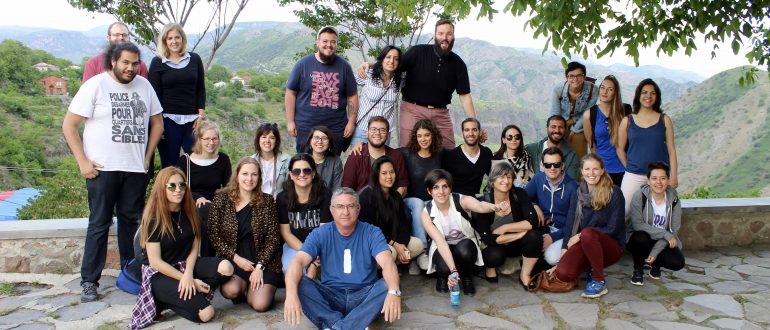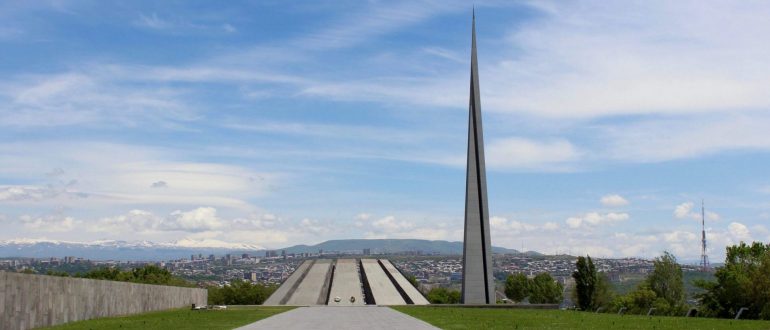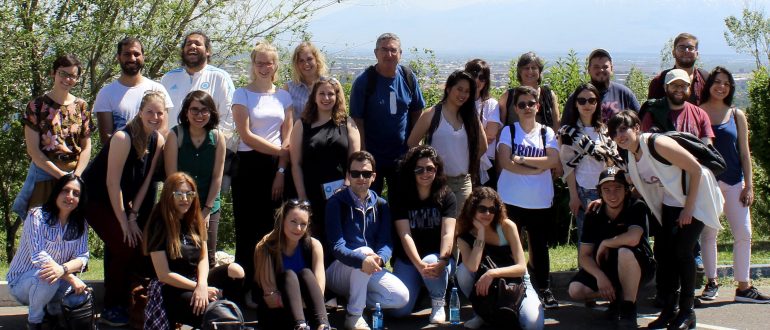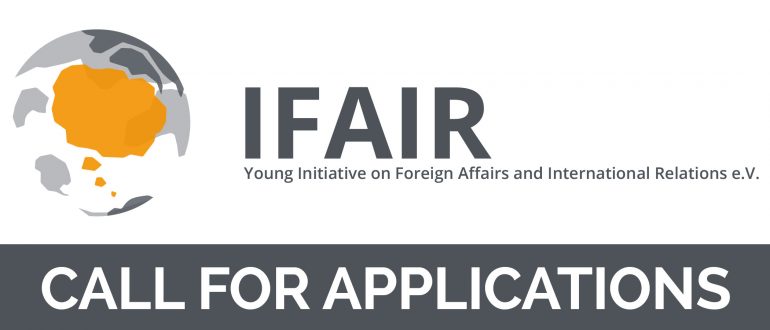
“Common Remembrance, Future Relations”: An Exchange Programme on Remembrance Culture and Coming to Terms with the Past
Historical experiences of suffering, injustice, persecution and tremendous violence significantly shape identities and affect social and political relations. IFAIR’s project “Common Remembrance, Future Relations” is under the patronage of Michael Roth, Minister of State for Europe at the Federal Foreign Office. In cooperation with with the NGO Armenian Progressive Youth (APY), it brought together twenty NGOs from Armenia, France, Germany, Israel and Turkey in Yerevan, Armenia, with the aim to explore varying forms of remembrance and to foster dialogue between the different cultures.
Processes of commemorating and coming to terms with the past, but also suppressing and stifling memories have shaped Armenian, German, French, Israeli and Turkish societies. These cultures of remembrance are interconnected, at times in conflict with one another, and generate diverging perceptions of the self and others, which can in turn result in conflictual inter-state relations. Practices of commemoration, discursive negotiations on “true” history and the historical legitimation of current policies reconstruct collective memory time and again. Dialogue and the exchange of experiences between civil society actors who attempt to dismantle negative images of the other and to reshape cultures of remembrance provide approaches for reconciliation and cooperation.
Against this backdrop, IFAIR for the first time invited twenty NGO representatives from the five countries to to Armenia from 24 to 28 May 2017. The three-part pilot project “Common Remembrance, Future Relations” not only provides a platform to examine the different cultures of remembrance and the impact of social constructs of the past on reconciliation and conflict, but also seeks to connect the NGOs and bring about lasting collaboration through joint projects.
The opening workshop in Yerevan offered a varied, interactive programme with a multitude of expert talks, group discussions and visits. The engaging expert talks on past events, cultural memory, remembrance culture and reconciliation set a valuable theoretical framework for the conference. The subsequent group discussions were particularly fascinating and informative. The enthusiastic participants discussed the role of memory in their respective countries and its impact on domestic and foreign policy decisions, as well as opportunities for action and the influence of NGOs on remembrance cultures and reconciliation. The issue of memory was furthermore illustrated on the example of Armenia through an excursion to the Tsitsernakaberd Memorial, as well as to Geghard and Garni.
Due to the project’s focus on exchanging experiences from the civil society sector and on developing ideas for effective cooperation, a talk on transnational projects provided insightful information and best practices for the participants’ future projects. The final day of the seminar was then geared towards finding a cooperation partner, devising a joint concept and preparing the second phase of the project, the work shadowing.
The participants will complete a reciprocal, a week-long work shadowing with their partner organisation by the end of August. This will not only enable them to get to know their partner’s work but also to develop their project further, both concerning the content and organizational aspects. The concluding evaluation meeting will take place in Berlin from 7 to 10 September 2017. The focus is then on sharing experiences regarding the work shadowing and challenges of the planning process as well as to present the projects and take part in workshops that refine the participants’ project management skills.
This article was published in July’s issue of the Diplomatic Magazine.



